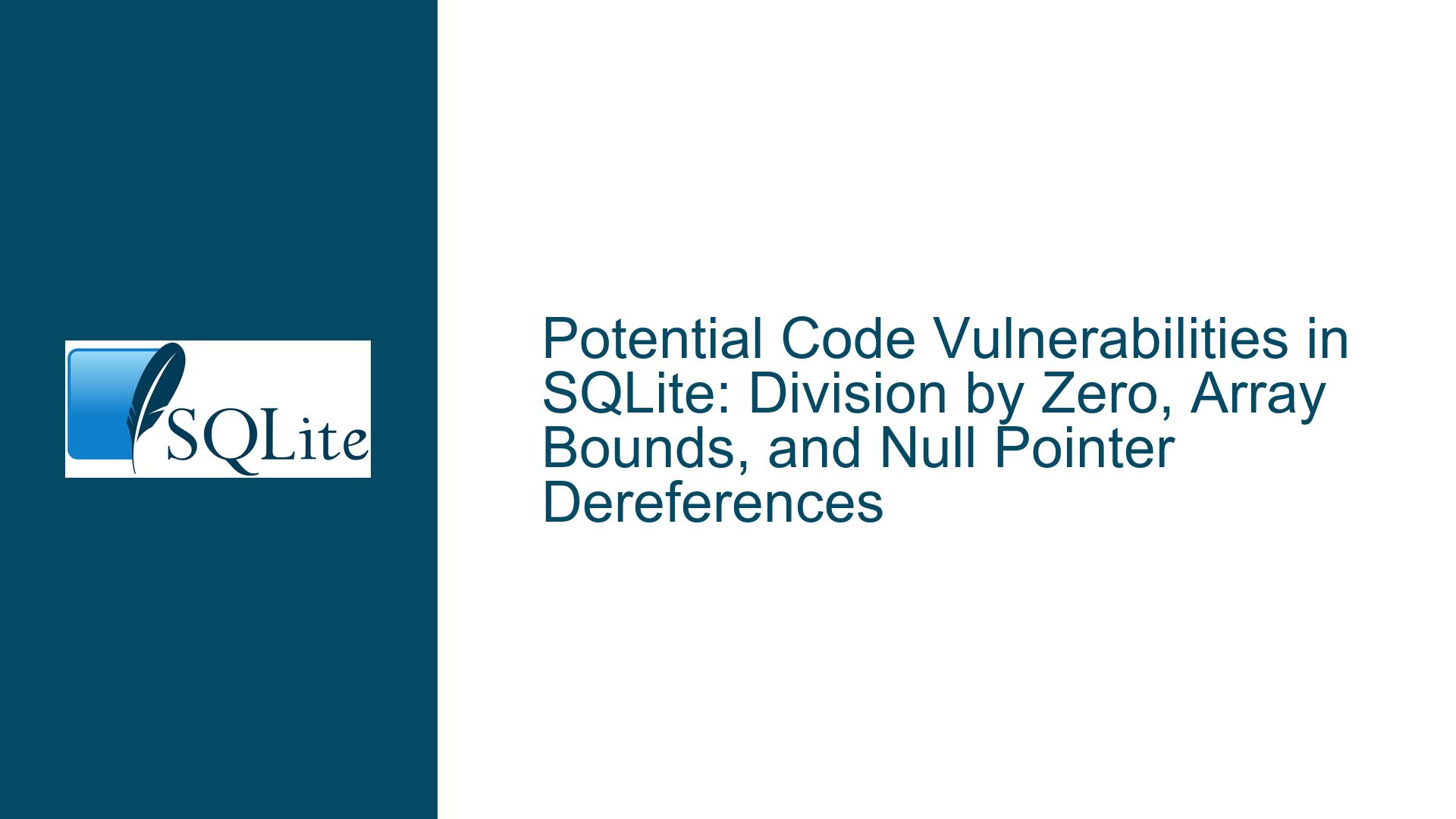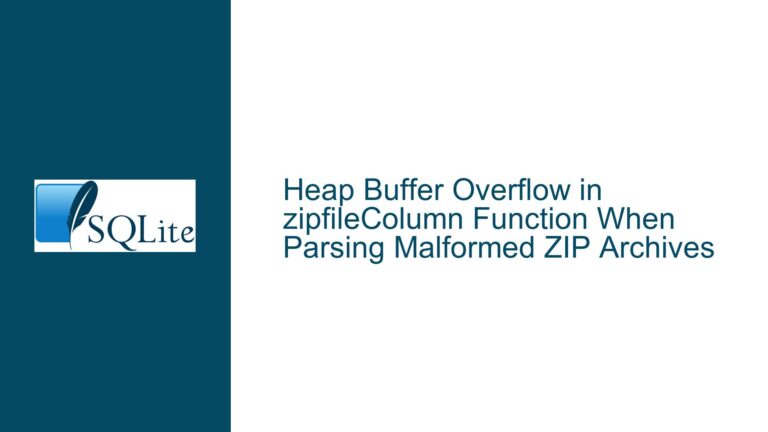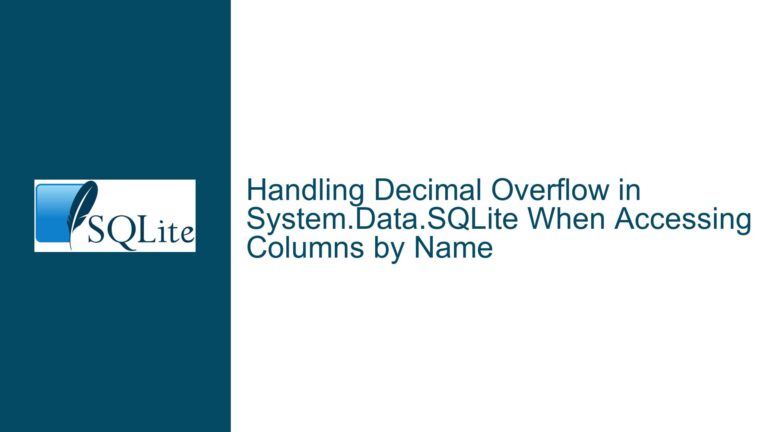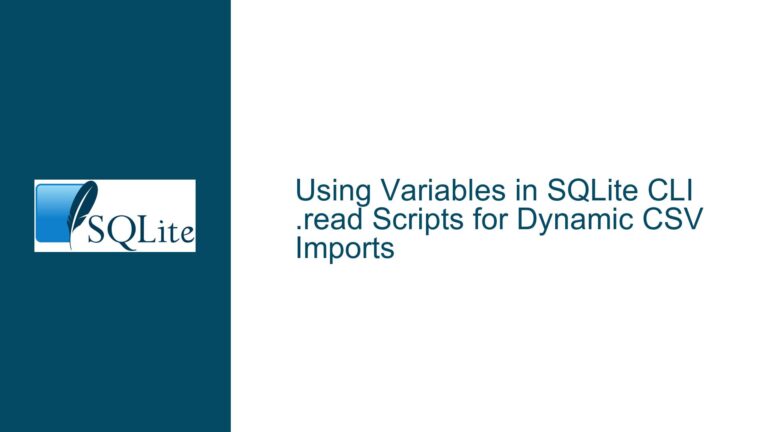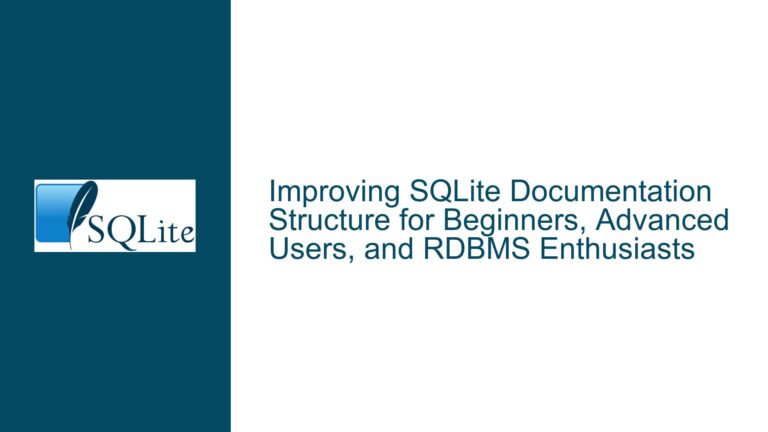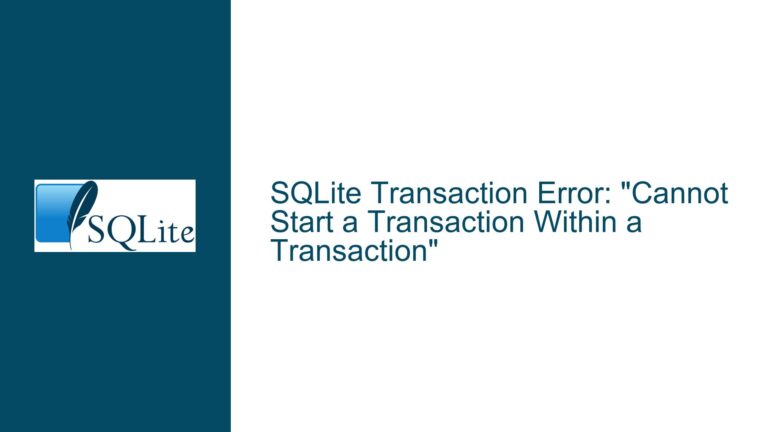Potential Code Vulnerabilities in SQLite: Division by Zero, Array Bounds, and Null Pointer Dereferences
Division by Zero in vdbePmaWriterInit and rehash Functions
The first issue revolves around the potential for division by zero in two distinct functions: vdbePmaWriterInit and rehash. In the vdbePmaWriterInit function, the vulnerability arises from the modulo operation iStart % nBuf, where nBuf could be zero. Similarly, in the rehash function, the modulo operation strHash(elem->pKey) % new_size could also result in a division by zero if new_size is zero. Both scenarios are critical because division by zero is undefined behavior in C and can lead to program crashes or security vulnerabilities.
In the vdbePmaWriterInit function, the fix involves adding a check at the beginning of the function to verify that nBuf is not zero. If nBuf is zero, the function should set an appropriate error code and return early. This ensures that the modulo operation is never executed with a zero divisor. The error code SQLITE_ERROR is used in this case, but the specific error code should be chosen based on the context of the application.
For the rehash function, the fix is similar. After the assignment of new_size, a check is added to ensure that new_size is not zero. If new_size is zero, the function should free any previously allocated memory, set the hash table pointer to null, and return early. This prevents the modulo operation from being executed with a zero divisor and avoids potential undefined behavior.
Both fixes are straightforward but require thorough testing to ensure that they do not introduce new issues or side effects. The changes are minimal, but their impact on the stability and security of the application is significant.
Array Bounds Violation in lowerFunc Function
The second issue is an array bounds violation in the lowerFunc function. The violation occurs when accessing the sqlite3UpperToLower array using an index derived from the z2 string. If the value of z2[i] is outside the valid range of the sqlite3UpperToLower array, it can lead to undefined behavior, including memory corruption or program crashes.
The fix involves adding a bounds check before accessing the sqlite3UpperToLower array. Specifically, the value of z2[i] is cast to an unsigned char and checked to ensure it is within the bounds of the sqlite3UpperToLower array. If the value is out of bounds, the character is copied directly to the output without modification. This ensures that the array access is always within valid bounds and prevents potential memory corruption.
Additionally, a check is added at the beginning of the function to verify that z2 is not null. If z2 is null, the function returns immediately, avoiding any further processing. This is a defensive programming practice that helps prevent null pointer dereferences and other potential issues.
The changes to the lowerFunc function are relatively simple but effective in addressing the array bounds violation. However, as with the previous fixes, thorough testing is required to ensure that the changes do not introduce new issues or side effects.
Same Object Violation in renameColumnTokenNext Function
The third issue is a same object violation in the renameColumnTokenNext function. The violation occurs when comparing the pointers pToken->t.z and pBest->t.z using the relational operator >. If the pointers refer to the same object, the comparison is meaningless and can lead to incorrect behavior.
The fix involves adding a check to see if pToken->t.z and pBest->t.z refer to the same object before performing the comparison. If they do, the loop continues to the next iteration, skipping the comparison. This ensures that the comparison is only performed when the pointers refer to different objects, avoiding the same object violation.
The change is minimal but important for ensuring the correctness of the function. By skipping the comparison when the pointers refer to the same object, the function avoids potential issues and behaves as expected. As with the other fixes, thorough testing is required to ensure that the change does not introduce new issues or side effects.
Null Pointer Dereference in memdbFromDbSchema Function
The fourth issue is a potential null pointer dereference in the memdbFromDbSchema function. The vulnerability arises because the function assumes that the pointer p is valid after the sqlite3_file_control call. However, there is no explicit check to ensure that p is not null before it is dereferenced.
The fix involves adding a null check for p after the sqlite3_file_control call and before any dereference of p. If p is null, the function returns immediately, preventing any null pointer dereferences. This is a simple but effective change that addresses the potential vulnerability.
The change is minimal but important for ensuring the stability and security of the application. By adding the null check, the function avoids potential crashes or undefined behavior caused by null pointer dereferences. As with the other fixes, thorough testing is required to ensure that the change does not introduce new issues or side effects.
Conclusion
In summary, the issues identified in the SQLite codebase are critical and require immediate attention. The fixes proposed for each issue are relatively simple but effective in addressing the vulnerabilities. However, thorough testing is required to ensure that the changes do not introduce new issues or side effects. By addressing these issues, the stability and security of the SQLite codebase can be significantly improved.
